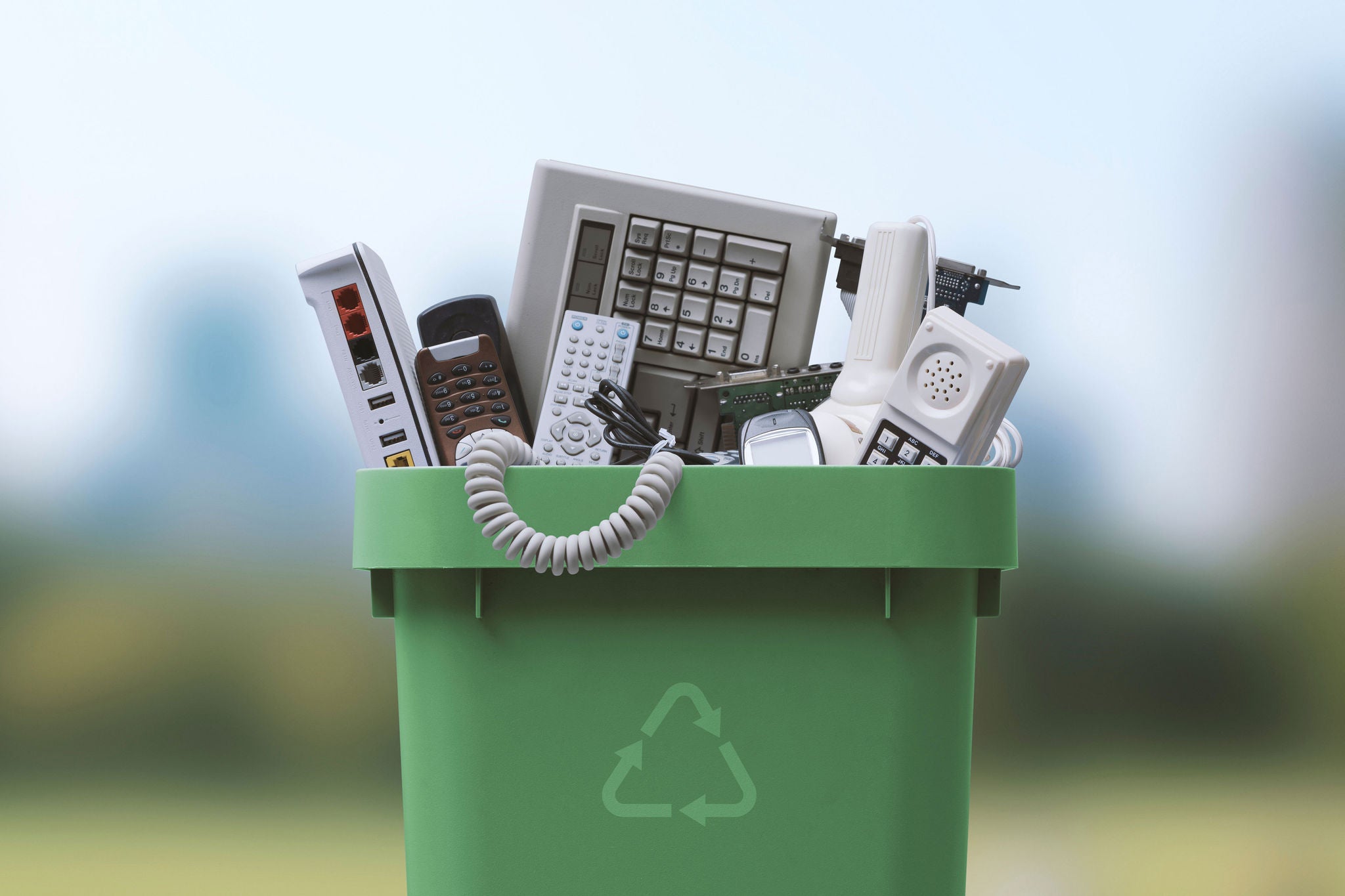In an era of constant technological innovation and rising environmental concerns, the intersection of these two areas has given birth to a movement that aims to not only reduce waste but also promote well-being: zero-waste technology. But can incorporating zero-waste principles into your daily tech practices actually improve your emotional resilience? The answer may be more nuanced than a simple yes or no. This article explores how zero-waste tech can help you foster emotional resilience, reduce mental clutter, and contribute to your overall sense of balance and well-being.
What is Zero-Waste Tech?
Before diving into its emotional benefits, let’s first break down what “zero-waste tech” means. Simply put, zero-waste technology refers to the practice of using, reusing, and recycling technology in a way that minimizes waste and its environmental impact. This concept extends beyond just the physical products; it involves embracing strategies that promote sustainability, like reducing e-waste, extending the lifespan of tech devices, and consciously choosing eco-friendly alternatives.
For example, adopting a zero-waste approach might involve:
- Repurposing old electronics instead of discarding them.
- Choosing repairable tech over disposable, non-repairable gadgets.
- Opting for energy-efficient devices that reduce carbon footprints.
- Supporting brands that emphasize sustainability in their production processes.
While the primary goal of zero-waste tech is to create a positive environmental impact, its potential benefits stretch far beyond the ecological realm.
The Link Between Environmental Consciousness and Emotional Well-being
At its core, emotional resilience is the ability to adapt to stress, adversity, or challenges while maintaining a sense of equilibrium. It involves managing negative emotions, staying grounded during difficult times, and recovering from setbacks. This is not a static trait but a dynamic skill that can be cultivated.
One powerful factor that has been shown to affect emotional well-being is our connection to the environment. Research consistently shows that environmental factors, such as the cleanliness of our surroundings, the availability of green spaces, and even our consumption habits, can directly impact our mental health.
Consider this: cluttered, chaotic environments can often leave us feeling overwhelmed, anxious, or mentally fatigued. Now, if we layer on top of that the sense of guilt or stress that comes with excessive waste, it’s easy to see how our emotional resilience could be compromised.
By embracing zero-waste principles, we can create an environment that not only promotes sustainability but also fosters a sense of emotional well-being. But how does this work in practical terms?

The Emotional Impact of Reducing Waste
- Clarity and Control
One of the key tenets of zero-waste living is simplifying your lifestyle. When it comes to tech, simplifying your gadgets and minimizing digital clutter can have a profound effect on your emotional resilience. The constant influx of information and the need to constantly update and upgrade your devices can feel like an emotional burden.
By choosing to limit the number of tech devices you own and commit to repairing or repurposing old ones, you create a sense of control. The overwhelming urge to keep up with the latest trends diminishes, allowing you to focus on what truly matters to you. This shift can be mentally liberating, as it frees you from the stress of technological overload.
Moreover, by practicing intentional tech usage, you also foster a sense of clarity. You’re not distracted by unnecessary gadgets or digital clutter, and this mental space helps build emotional resilience. You can focus better on your relationships, your goals, and your personal growth.
- Reducing Environmental Guilt
Many people today feel guilt associated with their role in environmental degradation, especially when it comes to the mountains of e-waste generated each year. Tech products are notoriously short-lived, often contributing to an overwhelming amount of discarded electronics, which can leach harmful chemicals into the environment. This guilt can create feelings of helplessness and anxiety, making it harder to stay emotionally grounded.
By choosing zero-waste tech practices, you can alleviate some of that environmental guilt. When you decide to repair your devices, extend their lifespan, or recycle them responsibly, you take active steps toward reducing your ecological footprint. This proactive approach not only benefits the planet but can also boost your emotional resilience. Knowing you are contributing to a healthier environment can foster a deep sense of fulfillment and self-efficacy, which are key components of emotional well-being.
- Engaging in Mindful Consumption

Another aspect of zero-waste tech is the practice of mindful consumption. Instead of mindlessly purchasing the latest tech gadget, zero-waste advocates encourage individuals to question the necessity of each purchase. Do you really need that new smartphone? Is it sustainable to upgrade every year? Mindful consumption isn’t about depriving yourself, but about making conscious decisions that align with your values and needs.
This level of mindfulness can significantly reduce the anxiety and stress that often accompany impulsive or unnecessary purchases. As you move away from constant consumerism, you create space for emotional stability. By carefully evaluating the things you bring into your life, you not only reduce waste but also cultivate a healthier mindset.
- Fostering Creativity and Problem-Solving
When you adopt zero-waste tech, you’re often forced to think creatively. Maybe your old laptop isn’t functioning properly, and instead of tossing it, you learn how to repair it. Perhaps your phone’s battery life has drastically decreased, and you find a sustainable solution by replacing the battery yourself. These small acts of problem-solving can enhance your emotional resilience.
The process of repair and repurposing nurtures a sense of accomplishment and confidence. It teaches you that setbacks and problems can often be solved with patience and creativity, rather than frustration or panic. These skills are transferable to other areas of life, helping you face emotional challenges with a clearer, more composed mindset.
- Tech Detox and Reconnection with Nature
In the world of constant connectivity, tech detoxes have become a popular way for people to regain their mental health. Disconnecting from social media, taking time off from constant emails, and reducing screen time are all proven ways to reduce stress and improve emotional resilience. Zero-waste tech practices naturally encourage some form of detox, as many people who embrace this lifestyle also prioritize the reduction of digital distractions.
Moreover, as part of a zero-waste philosophy, many individuals find themselves spending more time outdoors—whether it’s to compost old electronics or simply to enjoy the natural world without the interference of screens. Time spent in nature has been shown to improve mood, reduce stress, and increase overall well-being. When you engage with the environment in a mindful, sustainable way, you reconnect with a sense of peace that technology alone cannot provide.
The Long-Term Benefits for Emotional Resilience
Building emotional resilience is a gradual process that involves consistent effort and the cultivation of habits that promote mental clarity, well-being, and self-regulation. Zero-waste tech offers numerous long-term benefits for this journey:
- A Stronger Sense of Purpose: Aligning your tech usage with sustainability gives you a broader sense of purpose. You know that your actions are contributing to something greater than yourself, which can foster a deeper sense of satisfaction.
- Empowerment Through Choice: By making intentional decisions about the tech you use and how you dispose of it, you take control of your environment. This sense of empowerment can translate into greater confidence when facing other life challenges.
- Stronger Relationships: As you simplify your tech use and reduce distractions, you make room for more meaningful, face-to-face interactions. Building emotional resilience often involves cultivating stronger, more supportive relationships, and zero-waste tech can help facilitate this.
- Healthier Habits: Choosing energy-efficient devices, repairing old electronics, and reducing your overall consumption fosters a lifestyle that is healthier for both you and the planet. By incorporating mindful, sustainable practices into your routine, you cultivate habits that reduce stress and promote long-term well-being.
Conclusion: Zero-Waste Tech as a Tool for Emotional Growth
Zero-waste tech may seem like a niche concept, but its benefits extend far beyond the environment. When we embrace sustainable practices in our tech usage, we not only protect the planet but also improve our emotional resilience. By reducing mental and digital clutter, engaging in mindful consumption, and reconnecting with nature, we foster a healthier relationship with technology and ourselves.
In today’s fast-paced, consumer-driven world, emotional resilience is more important than ever. Whether you’re looking to reduce stress, build better habits, or simply feel more connected to the world around you, zero-waste tech offers a meaningful path forward. It may not be the only solution to cultivating emotional resilience, but it’s a step in the right direction—one that brings clarity, peace, and purpose to your life.











































Discussion about this post